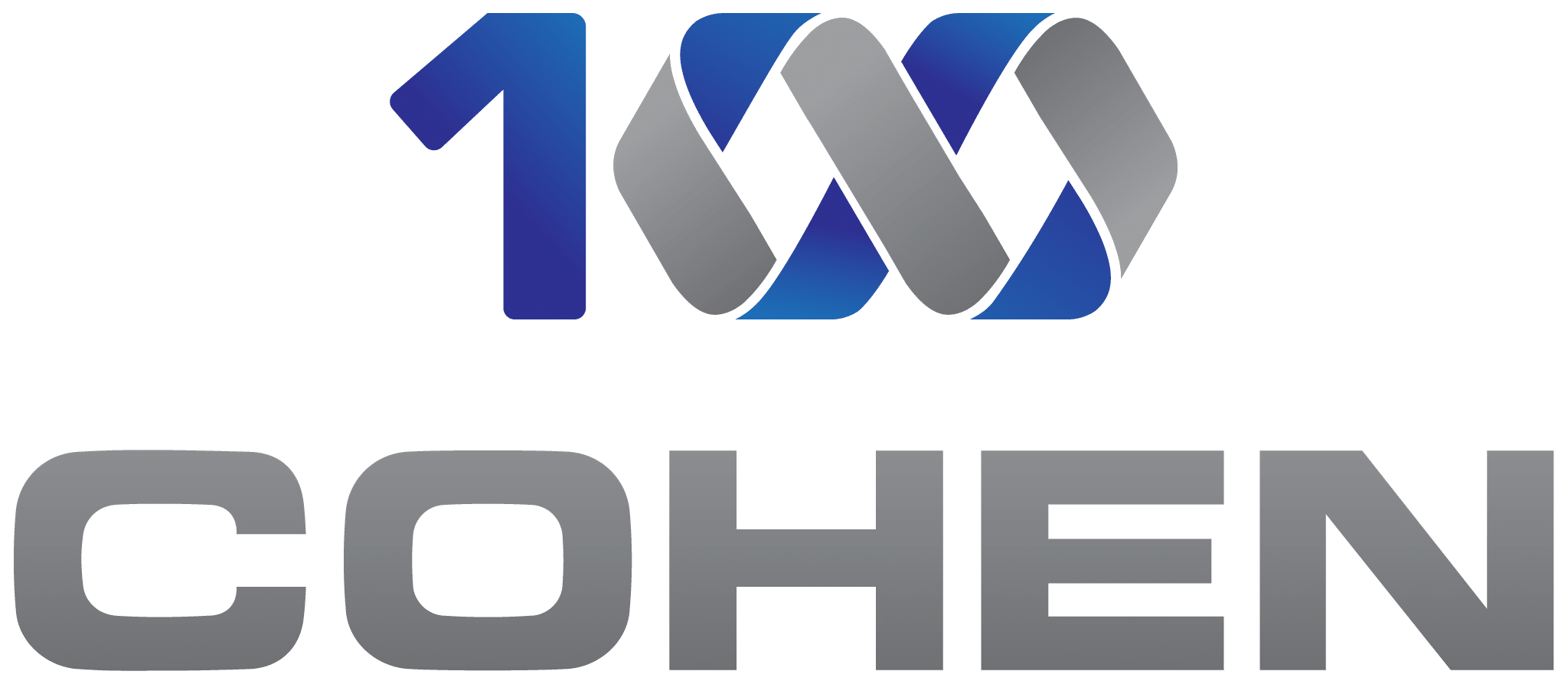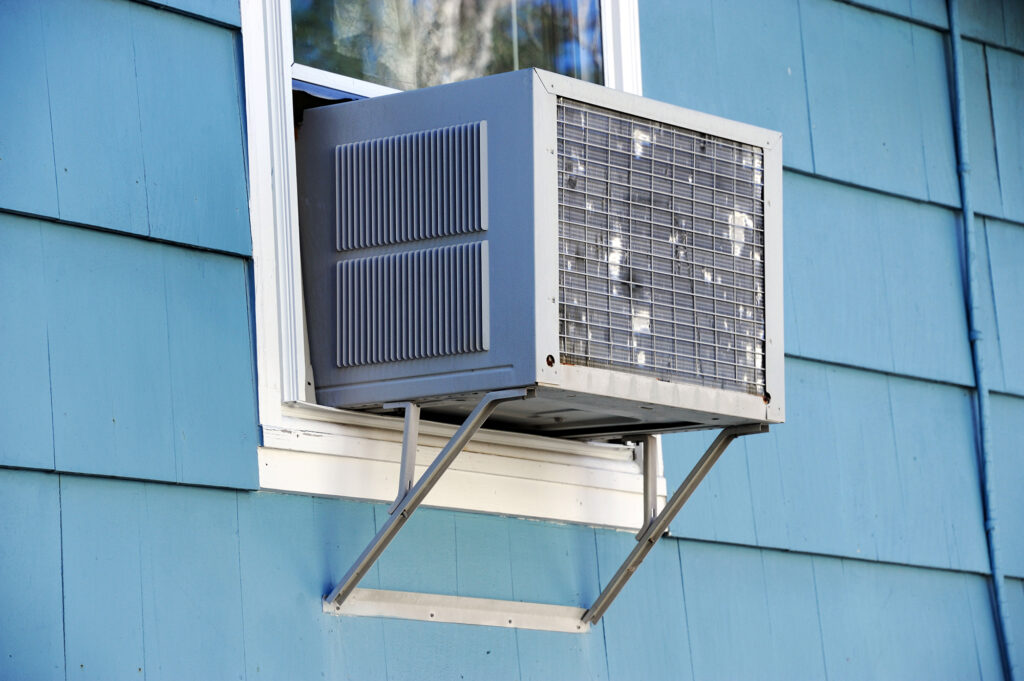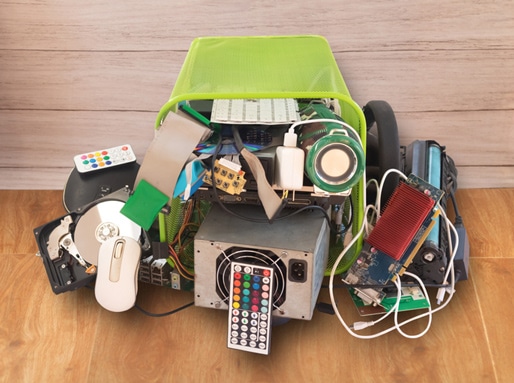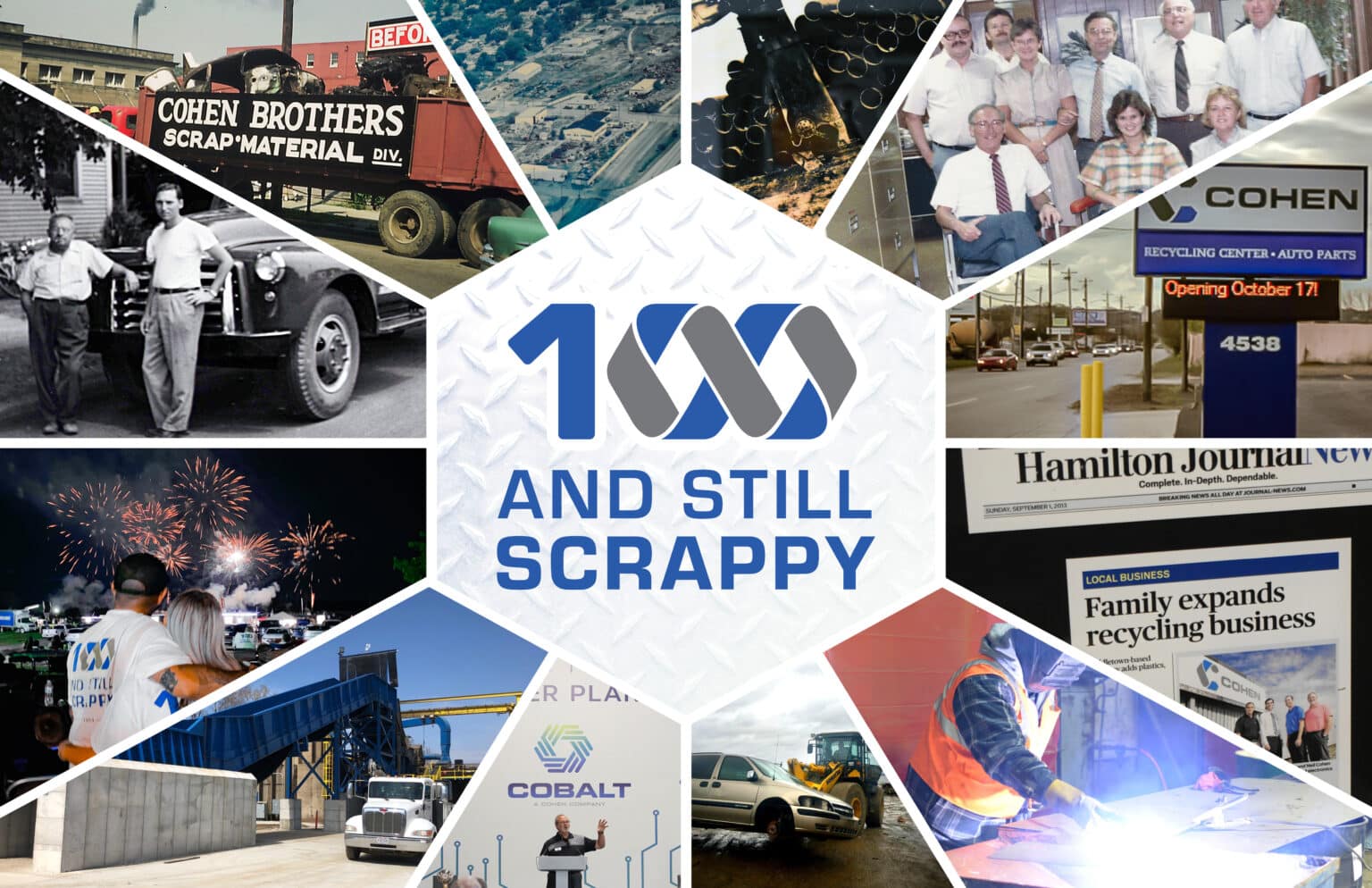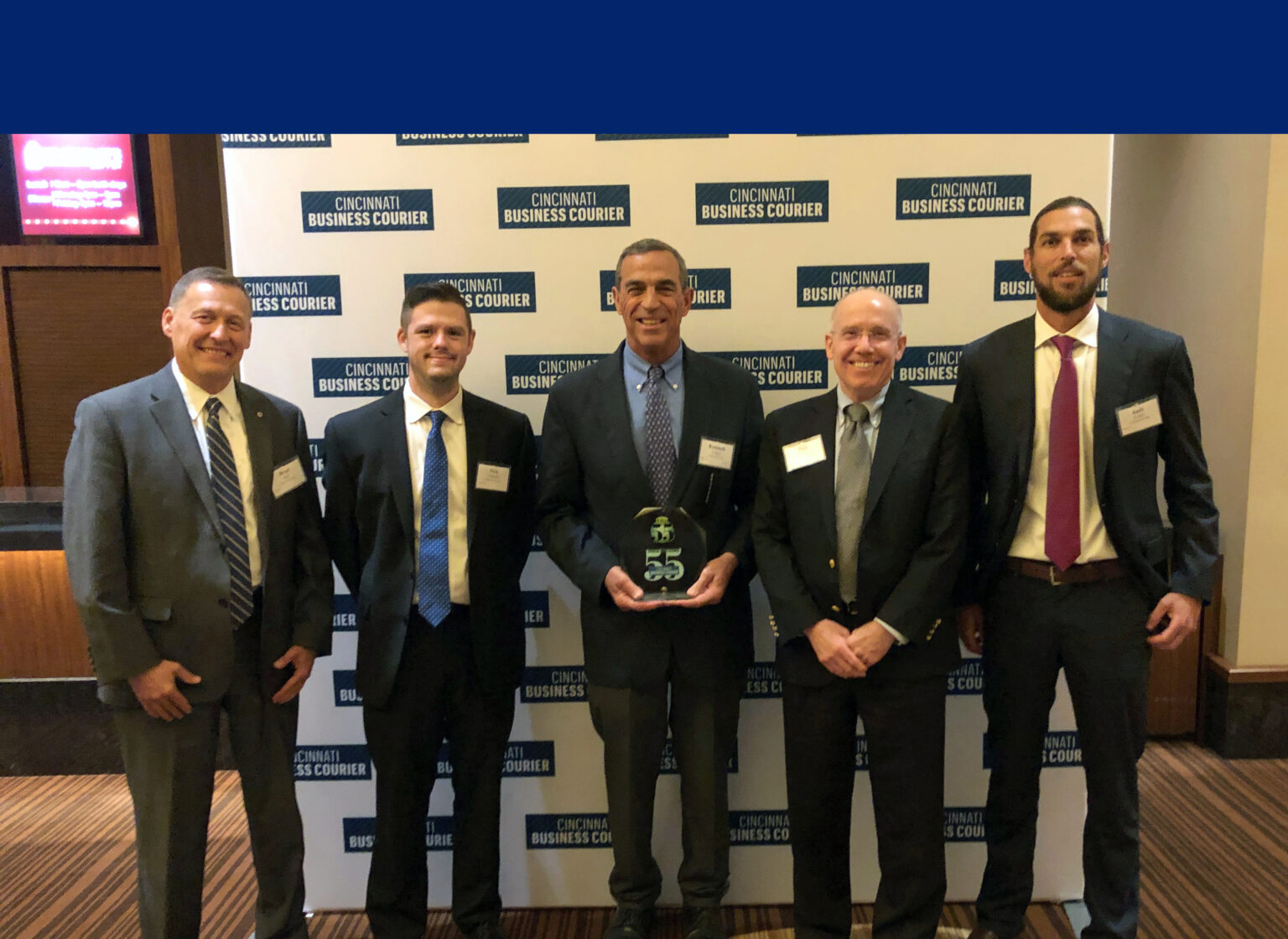Beginning January 1, 2020, the United States will begin enforcing a previous ban on the production, manufacturing, or importing of a class of refrigerants known as hydrochlorofluorocarbons (HCFCs). You probably know it as Freon. It’s the cooling agent that lets your refrigerator, freezer, and air conditioning unit do their jobs. And it’s bad news for the environment.
WHY IS FREON BEING BANNED?
To understand why Freon will be banned, it helps to know why it was developed in the first place. In 1928, a mixture of carbon, fluorine and chlorine known as CFC was used as a refrigerant but was determined to be unsafe for use in the home and unsafe for the environment rather quickly.
Freon (which is a trade name – it’s also referred to as HCFC-22 or R-22) was developed as a replacement and was considered safer because it was not flammable, toxic or corrosive, and it was odorless. However, after more testing in the mid-1970s, the EPA determined that Freon is just as bad for the environment over the long term because it damages the ozone layer.
In 1988, the United States signed the Montreal Protocol, agreeing to reduce consumption and production of ozone-depleting substances (ODS). Reducing ODS is a gradual process and the U.S. has been following a phase out schedule that started about a decade ago. On January 1, 2010, the EPA banned the production and installation of new appliances using R-22.
WILL I HAVE TO REPLACE MY AIR CONDITIONER?
If you have an air conditioning unit or other appliance that currently uses Freon, you will NOT have to replace or stop using your system right away. The whole point of this ODS reduction schedule is that it is gradual and allows people to replace their units on their own time and schedule.
However, as the production and import of Freon ceases, those still using older units will have to rely on the reclaimed, recycled, stockpiled and previously produced quantities of the refrigerant to service their systems. These limited supplies of Freon will become more and more expensive as it is phased out.
Surprisingly enough, the future of refrigerants is already here, and has been since the 1990s. The newest coolant is safer for the environment and is known as R410A. Currently, it is more expensive than Freon because it is not as widely used and available. As supply and demand for R410A evens out, so will its cost.
WHAT IS THE ENVIRONMENTAL IMPACT OF CFC/HCFC GASES?
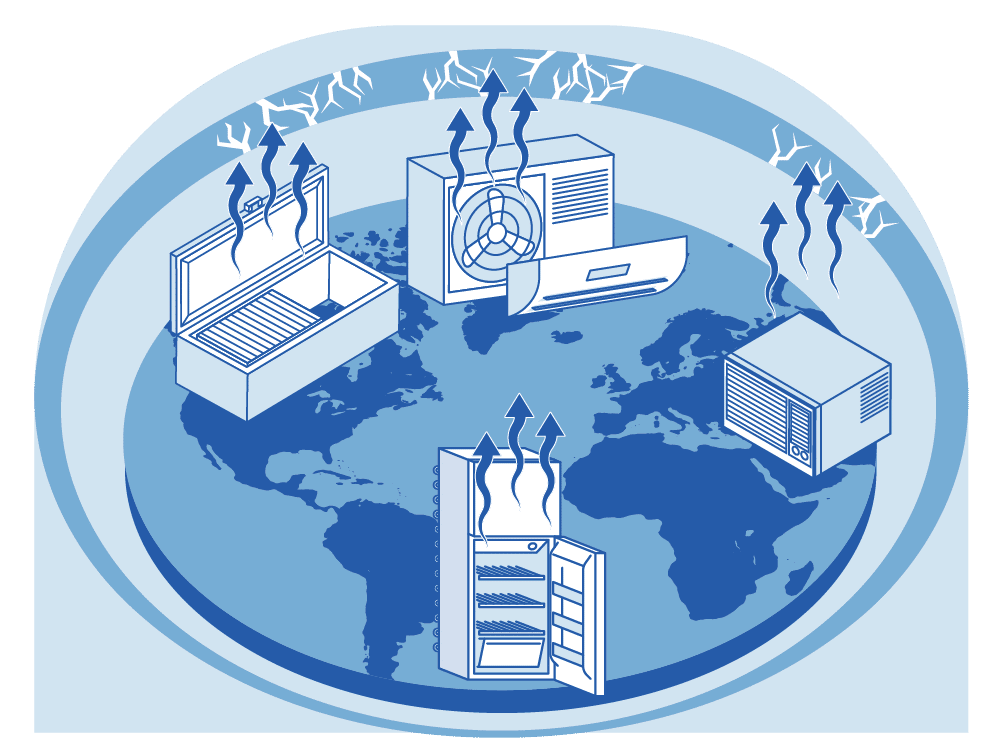
The environmental impacts of CFC and refrigerant gases pose a serious threat. Studies done during the 1970s revealed that CFCs released into the atmosphere accumulate in the stratosphere, where they had a damaging effect on the ozone layer. The stratospheric ozone layer shields living organisms on Earth from the harmful effects of the sun’s ultraviolet radiation.
In the stratosphere, the CFC molecules break down by the action of solar ultraviolet radiation and release their essential chlorine atoms. Chlorine behaves much differently, and more harmfully, on its own than it does when bonded with other atoms. Even a small depletion in the ozone layer concentration can result in an increased incidence of skin cancer in humans and genetic damage in many organisms.
CAN I RECYCLE MY AIR CONDITIONER?
Yes, air conditioners and other cooling appliances are recyclable. Any size, brand, type, and age of air conditioning unit can and will have recyclable materials. There are many types of metals and plastics that make up the components of air conditioners.
However, under the Clean Air Act, the EPA regulates how these appliances are to be handled to prevent the release of Freon into the atmosphere. Recycling can only happen once the refrigerant has been properly drained and captured. It is illegal to simply cut the lines or remove the compressor and release the gases. In other words, this is not a DIY job for the inexperienced or unequipped.
DOES COHEN TAKE AIR CONDITIONERS?
Yes, Cohen takes air conditioners, as well as refrigerators, freezers, and dehumidifiers, as long as they are in compliance with the requirements of the Clean Air Act. If the unit has already been drained and/or dismantled, we require a signed document affirming that the refrigerant was removed properly. If the unit is intact, we collect a $15 fee per unit to cover the cost of ensuring it is properly handled.
If you have any questions about recycling your appliance, call your local Cohen Recycling Center.
